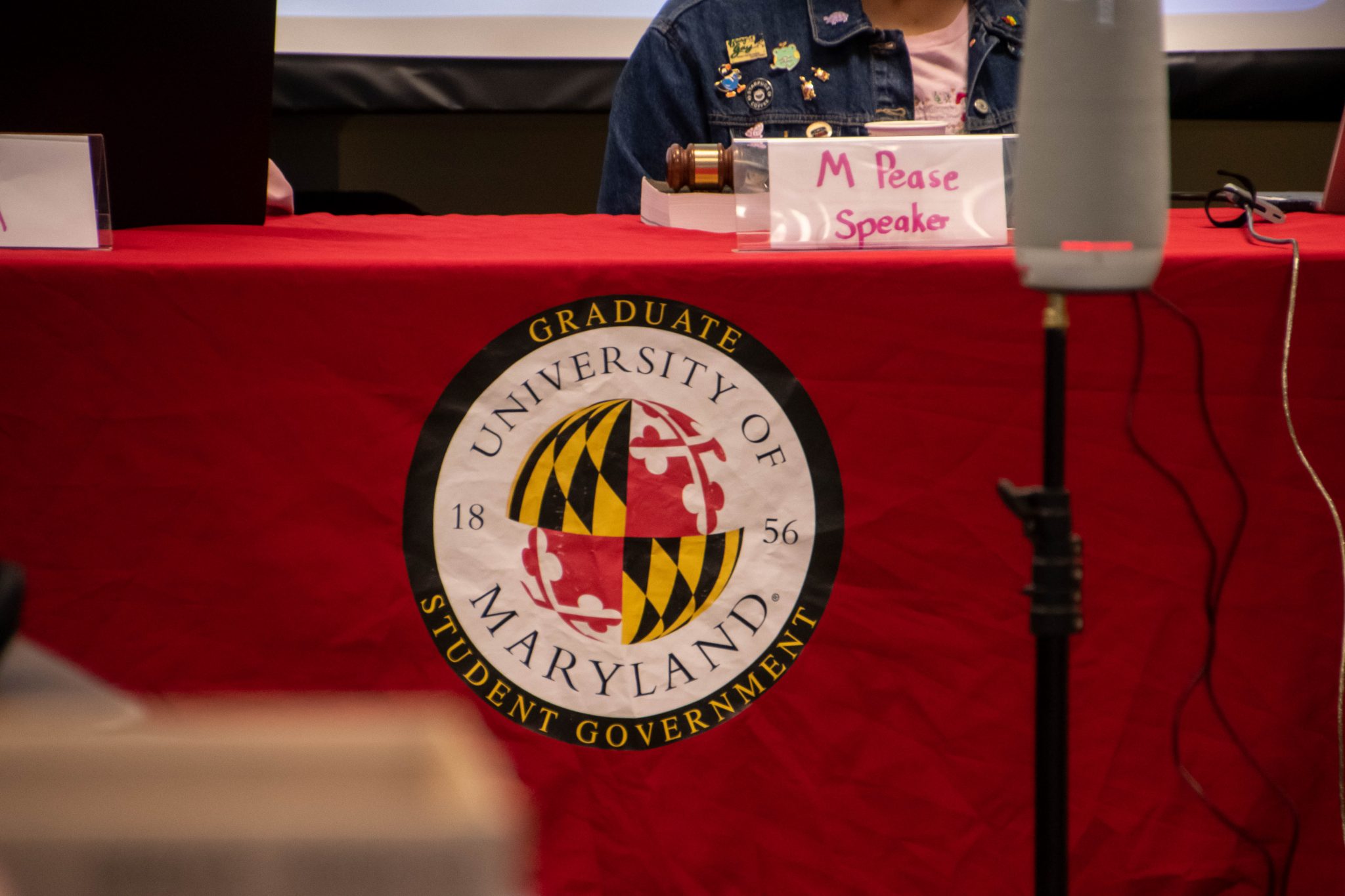The University of Maryland GSG passed a resolution Friday that urges this university and the University System of Maryland to voluntarily recognize graduate student workers’ right to unionize.
A similar resolution passes each year in the Graduate Student Government. Past resolutions have pressured the state legislature to enshrine collective bargaining rights for graduate student workers into state law, according to GSG member and Graduate Labor Union organizer Rose Ying.
This year’s resolution instead puts pressure directly on this university’s administration and the university system, the neuroscience and cognitive science doctoral student explained.
“There’s not anything in the law that says [graduate student] workers can’t unionize,” Ying, who co-authored this year’s resolution, said. “There’s just nothing in the law to compel public universities in Maryland to recognize those unions and bargain with them.”
More than 2,500 graduate student workers at this university have signed union authorization cards in support of unionization, Ying said.
[Hundreds of UMD graduate students rally for collective bargaining rights]
Maryland state law currently does not grant collective bargaining rights to graduate student workers. This university’s administration has historically testified against bills in the Maryland General Assembly that would allow for unionization.
Rather than continuing legal battles against GLU in the state legislature, this university and the university system could voluntarily recognize the union, Ying said.
Voluntary recognition happens when an employer chooses to recognize employees’ choice to unionize based on majority support without a formal election, according to the U.S. Department of Labor.
This university and the university system did not immediately respond to a request for comment in time for publication.
According to GSG director of operations Keegan Clements-Housser, the resolution “strongly signals” the desires of the graduate student body.
[UMD graduate school dean Stephen Roth reflects on first year, future goals]
“[This university] doesn’t have much in terms of official graduate student advocacy,” the journalism studies doctoral student said. “That’s kind of become our role.”
The benefits of collective bargaining rights, such as increased wages, hours negotiations and improved parental and medical leave, would improve the livelihood of the graduate student body, Clements-Housser said.
In preparation for the resolution, co-author of the resolution and GSG representative Nora Jameson worked with GLU members from the public health school to compile citations supporting the mental and social health benefits of unionization, they said.
“There was also no evidence suggesting that it harmed faculty-student relationships once collective bargaining went into effect,” the epidemiology doctoral candidate said
Jameson said they hope the endorsement from GSG will allow for more transparency for graduate student workers who are hesitant to support unionization.
“Being afraid of retaliation is not a fault of the union, ” Jameson said. “It is a fault of the environment in which … our students [are] afraid to ask for their needs.”



